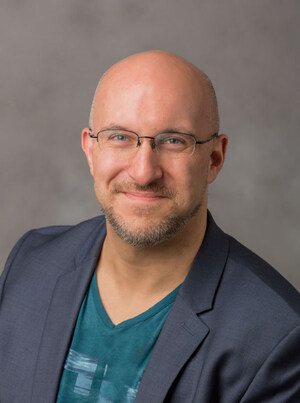Large Study Analyzes Two Different Classes of ADHD Drugs in Preschool-Age Children
--Study co-led by CHOP is the first to look at use of drugs like guanfacine in a large group of preschoolers with ADHD--
PHILADELPHIA, May 4, 2021 /PRNewswire/ -- In a multi-institutional study, researchers in the Developmental-Behavioral Pediatrics Research Network (DBPNet), led by Children's Hospital of Philadelphia (CHOP), have conducted the first and largest analysis to date comparing the effectiveness and side effects of stimulants like methylphenidate (Ritalin) and alpha-adrenergic agonists like guanfacine (Tenex) in preschool-age children. The researchers found that both classes of drugs have benefits, with differing side effects, suggesting that decisions on which class of drugs to prescribe should be made based on individual patient factors. The retrospective study was published today in JAMA.
"This is really the first study of any size to report on the frequency of improvement and side effects of drugs like guanfacine in preschool-age children," said senior author Nathan J. Blum, MD, Chief of the Division of Developmental and Behavioral Pediatrics at CHOP. "While this study confirms that clinicians are using drugs like guanfacine in preschoolers and that those drugs may be useful in some children, the research also strongly suggests we need future research to look in a rigorous way at the use of alpha-adrenergic agonists in this age group."
To assess the use, effectiveness, and side effects of stimulants and alpha-adrenergic agonists in preschoolers, the researchers reviewed electronic health records of 497 children seen at seven DBPNet outpatient developmental-behavioral pediatric practices between January 2013 and July 2017. Children included in the study were under the age of 6 when first treated with an alpha-adrenergic agonist or stimulant.
The researchers found that 175 children (35%) were prescribed an alpha-adrenergic agonist like guanfacine, while 322 children (65%) were prescribed a stimulant like methylphenidate (Ritalin). Although both groups reported improvement in symptoms, the benefit was slightly larger among those prescribed stimulants (78% vs. 66%).
However, in terms of side effects, patients taking alpha-adrenergic agonists reported fewer side effects than those taking stimulants, with lower rates of moodiness/irritability (50% vs. 29%), appetite suppression (38% vs. 7%), and difficulty sleeping (21% vs. 11%). The only side effect that was more common for those taking alpha-adrenergic agonists than those taking stimulants was daytime sleepiness (38% vs. 3%).
The researchers also found children younger than 4 years old who were prescribed a drug like guanfacine were likely to continue using the medication for longer than if they were prescribed a stimulant. In contrast, children aged 5 to younger than 6 prescribed were likely to continue using the medication for longer if they were prescribed a stimulant. For those ages 4 to 5, there was no significant difference between medications.
"Although the retrospective nature of our study means we weren't able to tell why patients stopped a given medication rather than continued with it, these data support potentially tailoring medication based on a child's age, among other personal factors that might influence medication decisions," Blum said. "Future research should seek to learn more about the use of these classes of drugs in preschool-age children so that we can prescribe the most effective therapy for each patient."
Other institutions involved in the study include Boston Children's Hospital; the Perelman School of Medicine at University of Pennsylvania; University of Oklahoma Health Sciences Center; Keck School of Medicine at University of Southern California, Los Angeles; Children's Hospital Los Angeles; Children's Hospital Colorado; Medical University of South Carolina; Stanford University; and Atrium Health.
Harstad et al. "α2-Adrenergic Agonists or Stimulants for Preschool-Age Children With Attention-Deficit/Hyperactivity Disorder," JAMA, online May 4, 2021, DOI: 10.1001/jama.2021.6118
About Children's Hospital of Philadelphia: Children's Hospital of Philadelphia was founded in 1855 as the nation's first pediatric hospital. Through its long-standing commitment to providing exceptional patient care, training new generations of pediatric healthcare professionals, and pioneering major research initiatives, Children's Hospital has fostered many discoveries that have benefited children worldwide. Its pediatric research program is among the largest in the country. In addition, its unique family-centered care and public service programs have brought the 595-bed hospital recognition as a leading advocate for children and adolescents. For more information, visit http://www.chop.edu
Contact: Camillia Travia
Children's Hospital of Philadelphia
(425) 492-5007
[email protected]
SOURCE Children's Hospital of Philadelphia

Related Links
WANT YOUR COMPANY'S NEWS FEATURED ON PRNEWSWIRE.COM?
Newsrooms &
Influencers
Digital Media
Outlets
Journalists
Opted In






Share this article